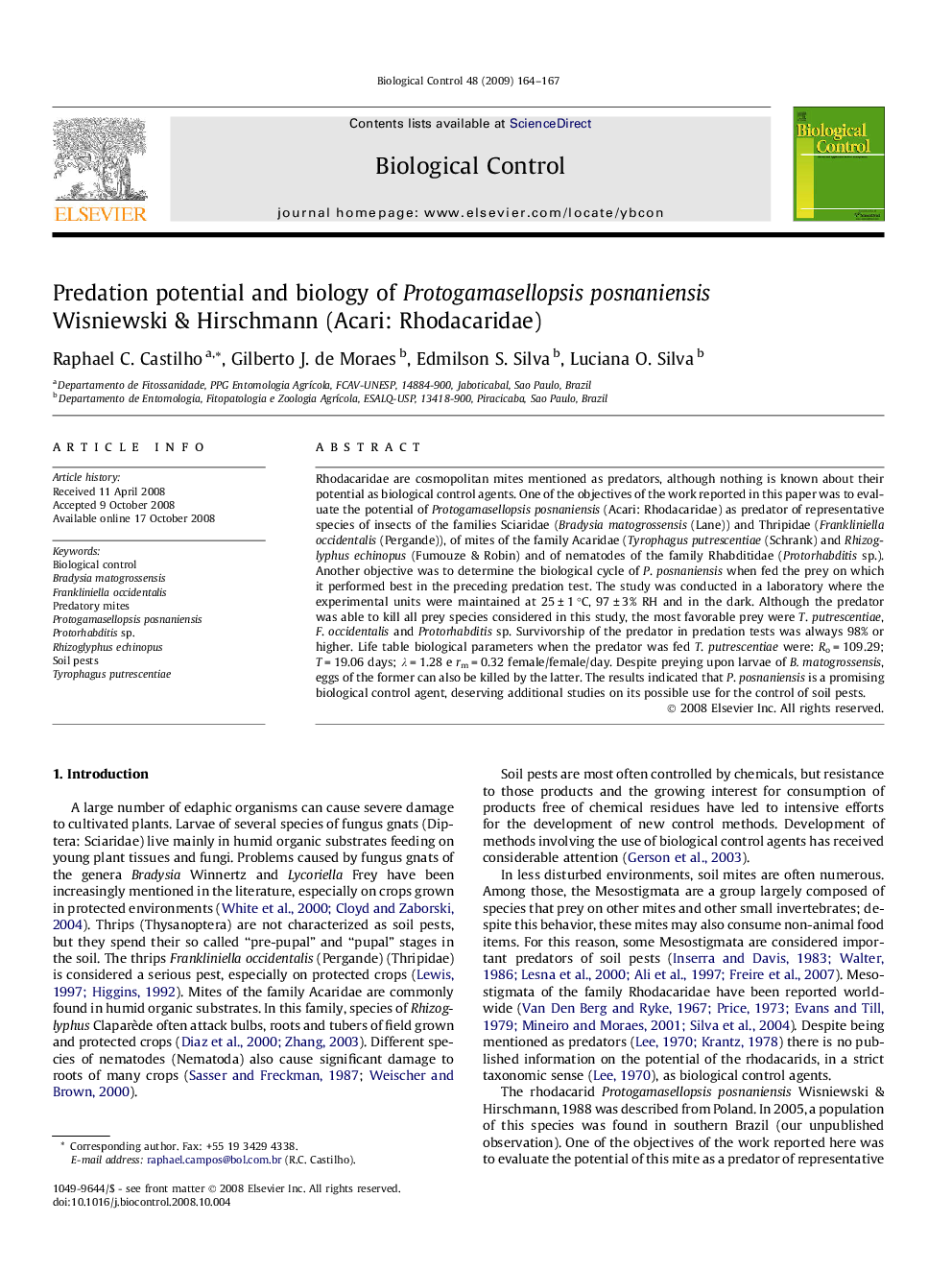| Article ID | Journal | Published Year | Pages | File Type |
|---|---|---|---|---|
| 4504698 | Biological Control | 2009 | 4 Pages |
Abstract
Rhodacaridae are cosmopolitan mites mentioned as predators, although nothing is known about their potential as biological control agents. One of the objectives of the work reported in this paper was to evaluate the potential of Protogamasellopsis posnaniensis (Acari: Rhodacaridae) as predator of representative species of insects of the families Sciaridae (Bradysia matogrossensis (Lane)) and Thripidae (Frankliniella occidentalis (Pergande)), of mites of the family Acaridae (Tyrophagus putrescentiae (Schrank) and Rhizoglyphus echinopus (Fumouze & Robin) and of nematodes of the family Rhabditidae (Protorhabditis sp.). Another objective was to determine the biological cycle of P. posnaniensis when fed the prey on which it performed best in the preceding predation test. The study was conducted in a laboratory where the experimental units were maintained at 25 ± 1 °C, 97 ± 3% RH and in the dark. Although the predator was able to kill all prey species considered in this study, the most favorable prey were T. putrescentiae, F. occidentalis and Protorhabditis sp. Survivorship of the predator in predation tests was always 98% or higher. Life table biological parameters when the predator was fed T. putrescentiae were: Ro = 109.29; T = 19.06 days; λ = 1.28 e rm = 0.32 female/female/day. Despite preying upon larvae of B. matogrossensis, eggs of the former can also be killed by the latter. The results indicated that P. posnaniensis is a promising biological control agent, deserving additional studies on its possible use for the control of soil pests.
Keywords
Related Topics
Life Sciences
Agricultural and Biological Sciences
Agronomy and Crop Science
Authors
Raphael C. Castilho, Gilberto J. de Moraes, Edmilson S. Silva, Luciana O. Silva,
